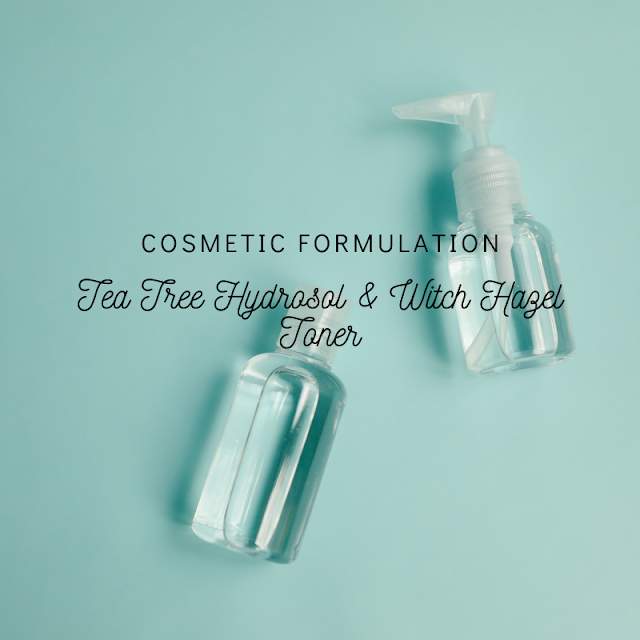Cosmetic Formulation: Tea Tree Hydrosol & Witch Hazel Toner
Thursday, October 29, 2020
Recently,
I’ve been studying how to formulate toners for different skin types. Facial
toners are one of the easiest cosmetic formula to make if you’re only going to
use water soluble ingredients. For this post, I decided to develop an alcohol-free
facial toner specifically designed for people with oily and/or acne-prone skin.
Normally,
alcohol is used in oil-control facial toner for its astringent properties.
Since this is an alcohol-free formula, I decided to replace alcohol with witch hazel extract which is also an
astringent. Take note though that there are some witch hazel extract being sold
in the market that contains alcohol. Just to be sure, ask your supplier for the
INCI of the witch hazel extract. If the INCI contains ethanol, then the witch hazel extract is not alcohol-free.
Another
important ingredient for this formulation is the tea tree hydrosol. Since I want the formulation to be completely
oil-free, I decided to use tea tree hydrosol instead of tea tree essential oil.
Tea tree is known for its antibacterial and anti-inflammatory properties making
it an essential ingredient in treating acne.
I
also included glycerin as humectant
(attract moisture to the skin) and aloe
vera extract as emollient (smooth and soften the skin).
For
the preservative, I used DMDM Hydantoin
which is water soluble. DMDM Hydantoin is a synthetic preservative and the only
ingredient that is not natural in this formulation. If you want to use natural
preservative, you can replace it with Geogard ECT (also known as Preservative Eco) and
adjust the formula accordingly since it has different usage rate than DMDM
Hydantoin. I just happened to have a hard time finding Geogard ECT locally.
Formula
(Makes 100 grams)
|
Ingredient |
Weight (%) |
Weight (g) |
|
Phase A |
||
|
Tea Tree Hydrosol |
67.8 |
67.8 |
|
Witch Hazel Extract |
20 |
20 |
|
Aloe Vera Extract (liquid) |
10 |
10 |
|
Glycerin |
2 |
2 |
|
DMDM Hydantoin |
0.2 |
0.2 |
|
100 |
100 |
|
Instructions
- In a glass beaker, mix all phase A ingredients together.
- Adjust the pH of the final product between 5 to 6 (if necessary).
- Transfer the solution into a flip-top bottle.
Where to buy the materials (Philippine-based)
- Tea tree hydrosol – Cedar Alley
- Witch hazel extract – Craftology Essentials
- Aloe vera extract - Craftology Essentials
- Glycerin - Craftology Essentials
- DMDM Hydantoin - Craftology Essentials
To
always get the latest blog updates, don’t forget to follow me on Facebook.
Disclosure: This post contains
affiliate links, which means that if you click on one of the product links and
purchase the products, I’ll receive some commission.









0 comments